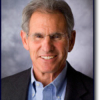Jon Kabat-Zinn

Jon Kabat-Zinn
Jon Kabat-Zinnis Professor of Medicine Emeritus and creator of the Stress Reduction Clinic and the Center for Mindfulness in Medicine, Health Care, and Society at the University of Massachusetts Medical School. Kabat-Zinn was a student of Buddhist teachers such as Thich Nhat Hanh and Zen Master Seung Sahn and a founding member of Cambridge Zen Center. His practice of yoga and studies with Buddhist teachers led him to integrate their teachings with those of science. He teaches mindfulness, which he...
NationalityAmerican
ProfessionEducator
Date of Birth5 June 1944
CountryUnited States of America
As long as you are breathing, there is more right with you than there is wrong, no matter how ill or how hopeless you may feel. But if you hope to mobilize your inner capacities for growth and for healing and to take charge in your life on a new level, a certain kind of effort and energy on your part will be required.... It will take conscious effort on your part to move in a direction of healing and inner peace. This means learning to work with the very stress and pain that is causing you to suffer.
Once in awhile throughout the day...let go into full acceptance of the present moment, including how you are feeling and what you perceive to be happening... Give yourself permission to allow this moment to be exactly as it is, and allow yourself to be exactly as you are. Then, when you're ready, move in the direction your heart tells you to go, mindfully and with resolution.
I started the Stress Reduction Clinic in 1979. The idea of bringing Buddhist meditation without the Buddhism into the mainstream of medicine was tantamount to the Visigoths being at the gates about to tear down the citadel of Western civilization.
There are many different aspects to a formal meditation practice. But the real meditation practice is how you interface with life from moment-to-moment, no matter what's happening. Especially when you are awake, which is pretty much most of the time except for deep sleep.
Meditation had never been tried before in a medical center, so we had no idea whether mainstream Americans would accept a clinic whose foundation was intensive training in meditative discipline.
I don't want people following Jon Kabat-Zinn. I want them following themselves.
I loved science, and when I discovered Buddhist meditative practices and martial arts, I was able to bridge those ways of knowing the world into my own unique way. From that grew the Mindfulness-Based Stress Reduction (MBSR) program, which became my karmic assignment.
I'm challenging everybody on every side of every divide to be more who they are, to cultivate their capacity for awareness.
It is what makes us human, what distinguishes us from other animals. We can be aware of being aware.
Mindfulness is often spoken of as the heart of Buddhist meditation. It's not about Buddhism, but about paying attention. That's what all meditation is, no matter what tradition or particular technique is used.
Science gave me a cosmic religious feeling, and I would get the same feeling when I was dragged to the Met and the Museum of Modern Art.
You don't need the iPhone: you have the most exquisite apparatus in the known universe sitting right in your head - the most complex organization of matter in the entire universe. And here are we, feeling a little depressed, feeling like we're not getting where we need to be, when really you might be exactly where you need to be.
I'll take transformational change any way it comes. One way to look at meditation is as a kind of intrapsychic technology that's been developed over thousands of years by traditions that know a lot about the mind/body connection. To call what happens 'the placebo effect' is just to give a name to something we don't understand.
The notion that the mind and body are actually different sides of the same coin goes all the way back to the origins of medicine. For most of its history, the practice was not separated from other aspects of human activity.